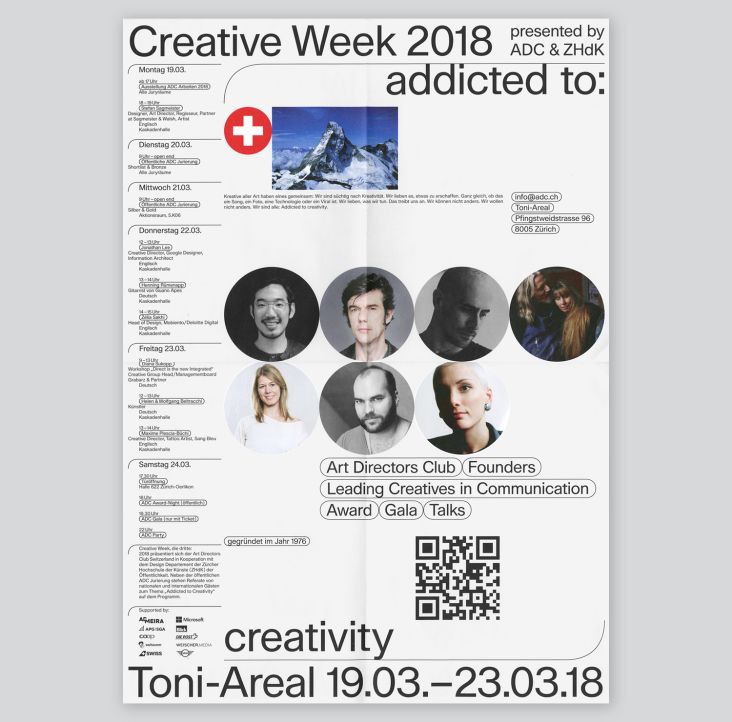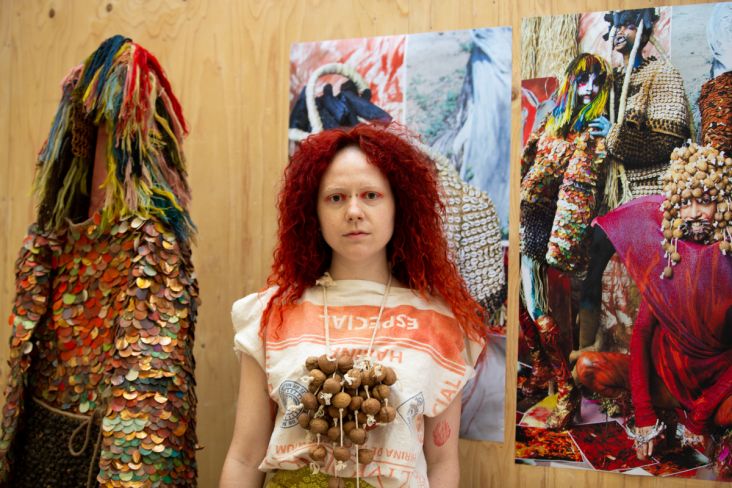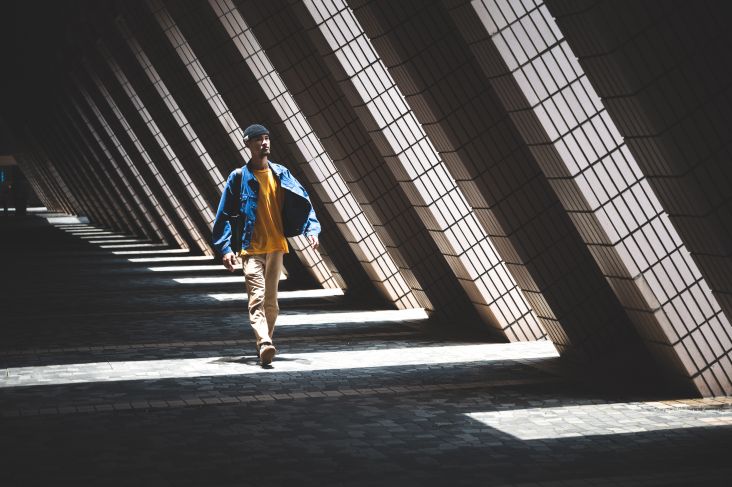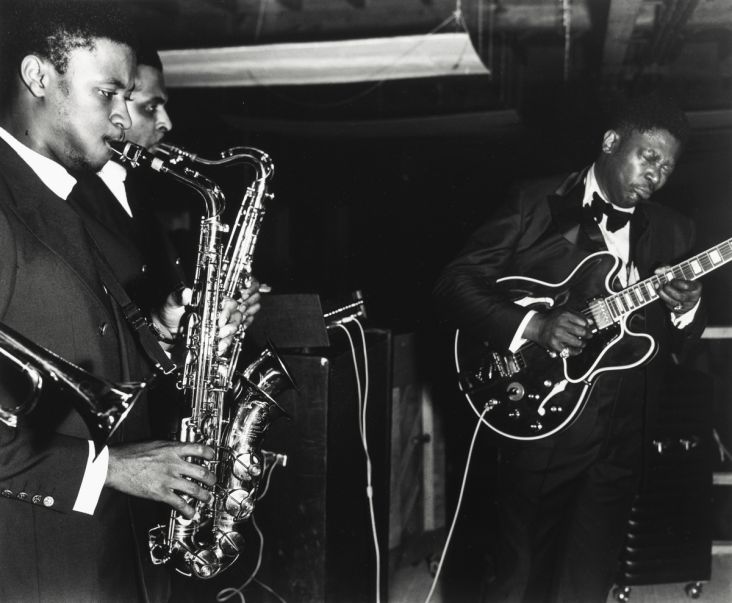How to run your own design festival, according to the founders of BDF
It's hard to believe that Birmingham Design Festival only began in 2018, set up by two friends passionate about their city and the people who make it so creative.
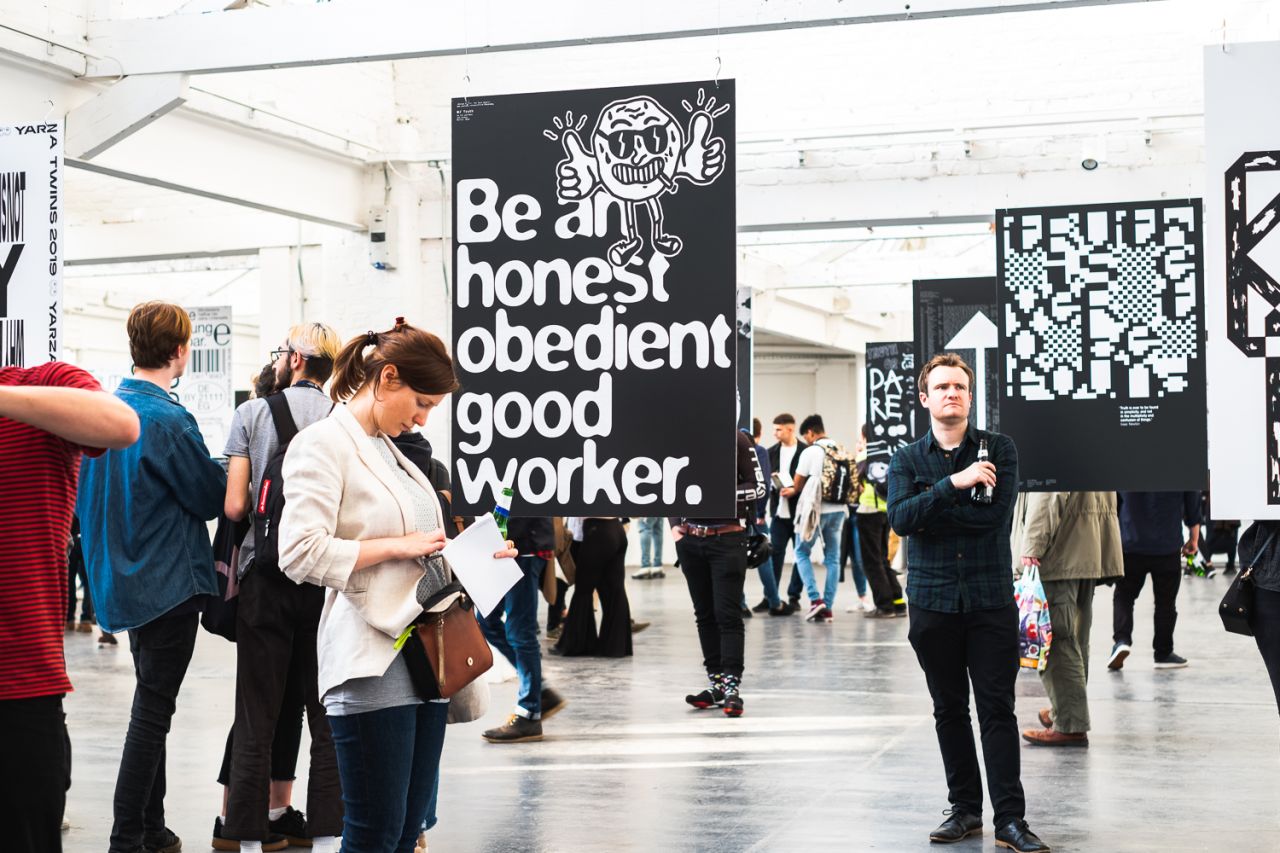
All images courtesy of Birmingham Design Festival
After just two years on the trot, it's become an instant hit with the creative industries, attracting leading names from all over the world. Aaron Draplin, Marina Willer, Eve Warren, Veronica Fuerte and Gavin Strange – they're just some of the fantastic speakers to grace the festival's stage.
But how did founders Luke Tonge and Daniel Acorn make it happen? And how have they made it look so incredibly polished each time? With a chance to make mistakes, learn some valuable lessons and figure out where they need to do next, we thought it was an ideal opportunity to ask Luke and Dan for their advice on staging a creative festival. So if you're thinking about hosting something similar, you can benefit from their wisdom.
This has been your second year of Design Birmingham. How did it go?
Dan: I think well. Much like any creative process, you get to a point when you’ve looked at something so much; it’s difficult to form a critical analysis. The feedback has been overwhelmingly positive though, and the consensus seems to be that we achieved the unthinkable task of topping last year. My favourite comment I’ve seen so far is “Turns out BDF’s difficult second album ended up being Nirvana’s Nevermind”. I’ll take that.
Luke: It's probably worth saying from the outset, we don't profess to be experts and are very much learning on the job…that said, it was super fun, and that means it's a success to us (as opposed to say, our accountant!). We put a lot of time and effort into making BDF happen and so like most creatives; we're pretty self-critical and down on ourselves when things don't go entirely smoothly. But two years in, it feels like the festival now has a unique feel and vibe – it's relaxed (yet unafraid to tackle serious subjects), accessible and inclusive.
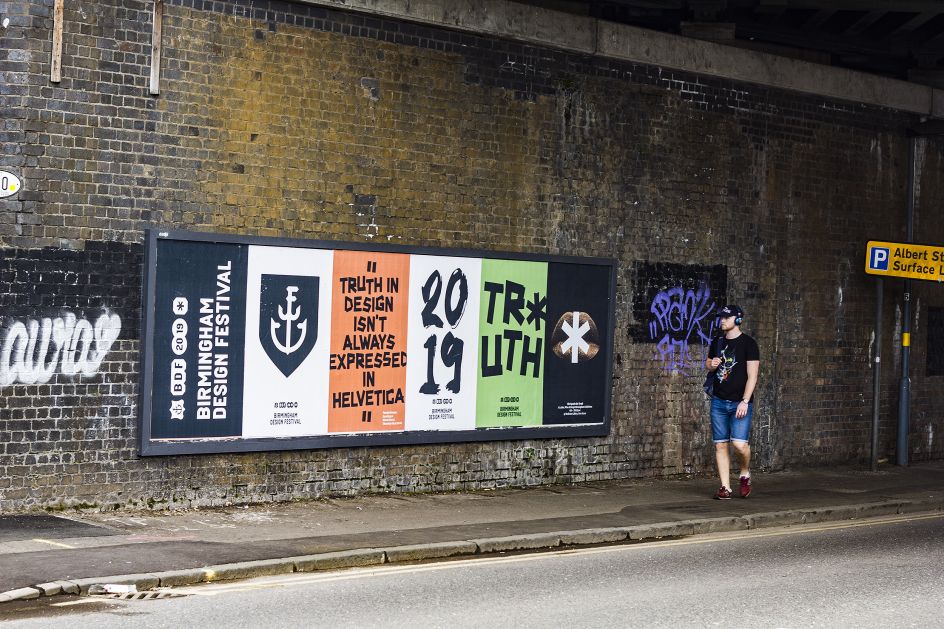
Birmingham Design Festival
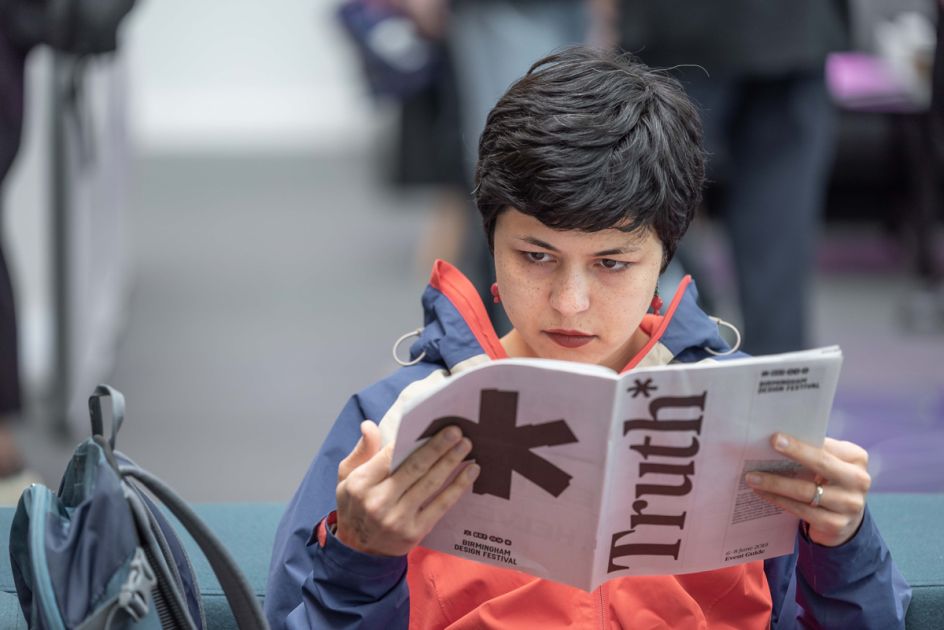
Birmingham Design Festival. Photography by Martin O'Callaghan
You learnt lessons from your debut year in 2018. What were those and how did you tackle them this time around?
Luke: If a venue doesn't work out for you, don't use it again! We switched some key locations this time around, which was a vast improvement. Also, don't expect talks which have sold out (when they're free) to be more than half full, we saw a significant dropoff rate in our first year so we oversold all our free talks this year and it helped. The "best" talks aren't always necessarily from the big names, so we continued to invite first-time speakers who we believe have interesting stories to tell.
Dan: One of the big lessons from last year was that actually, we did a lot right, so there wasn’t a massive amount to change from external perception. Internally, we knew there were logistical things that needed tightening up. The festival radius was too spread, the days were too long, and the festival could’ve ended a day earlier with no adverse impact. It led to staff and volunteers becoming extremely tired, so we condensed things a little, which generally made things a lot more manageable for everyone.
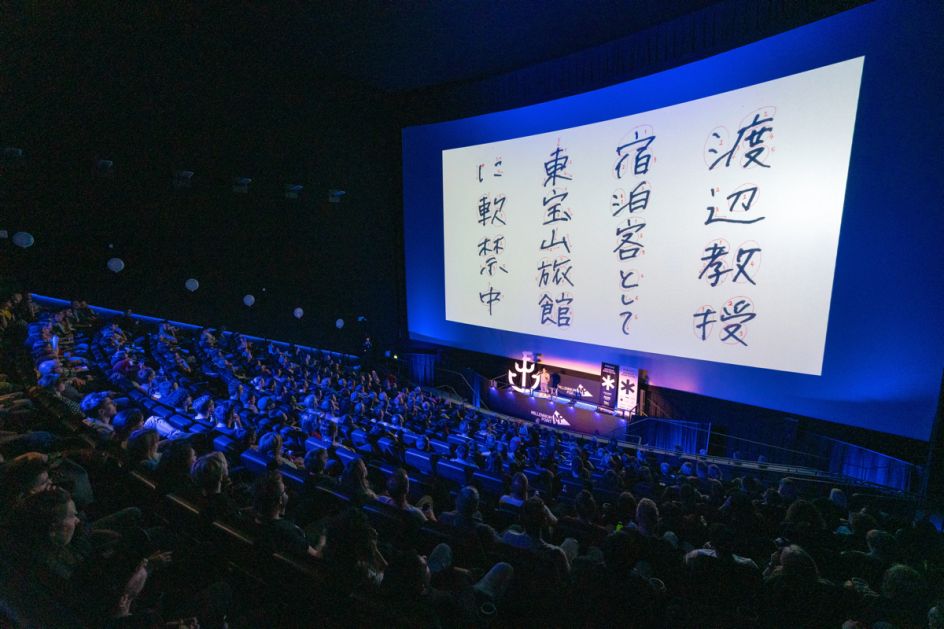
Birmingham Design Festival. Photography by Martin O'Callaghan
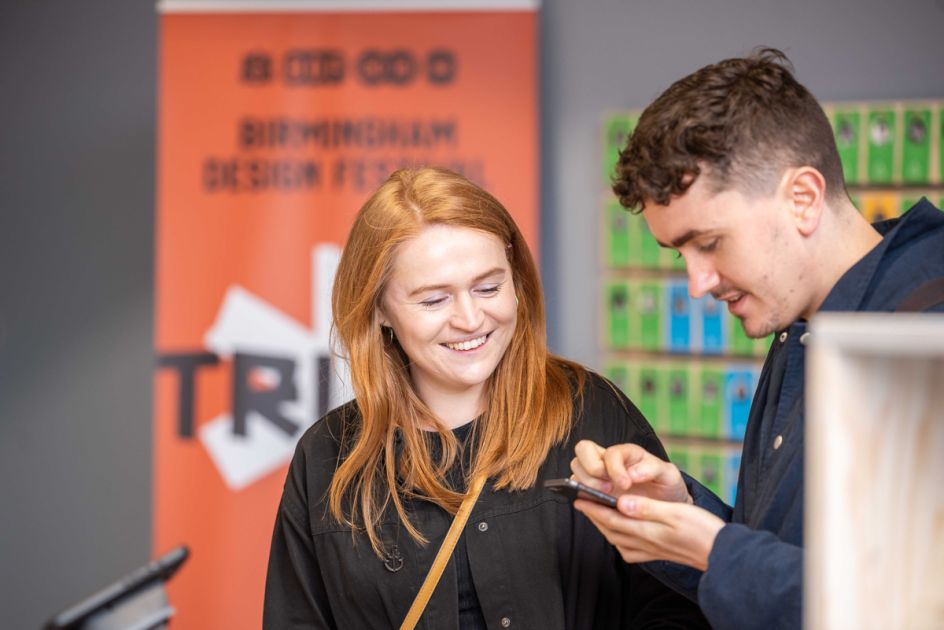
Birmingham Design Festival. Photography by Martin O'Callaghan
Were there any problems during the event? How did you solve them?
Dan: During the festival itself, I can’t think of too much, though a definite low point was Thursday night being far too busy than we were comfortable with, to the point where some people couldn’t see, and one person fainted. We quickly brought in more benches and tried to aerate the room a little, it seemed to help, and I think most of the audience enjoyed the night. It made us sad, though as we want everyone to have the best time possible.
Luke: Other than the above, the most significant problems were all (thankfully) pre-fest – nothing major, the usual wrangles sorting sponsorship, booking venues, confirming speakers, etc. All of them were solved with a mixture of patience, persistence and PMA. As most of our programme is free, money is what keeps us up at night. But fortunately, thanks to generous sponsors and speakers (and an incredible team, and very patient and understanding wives), we make it work.
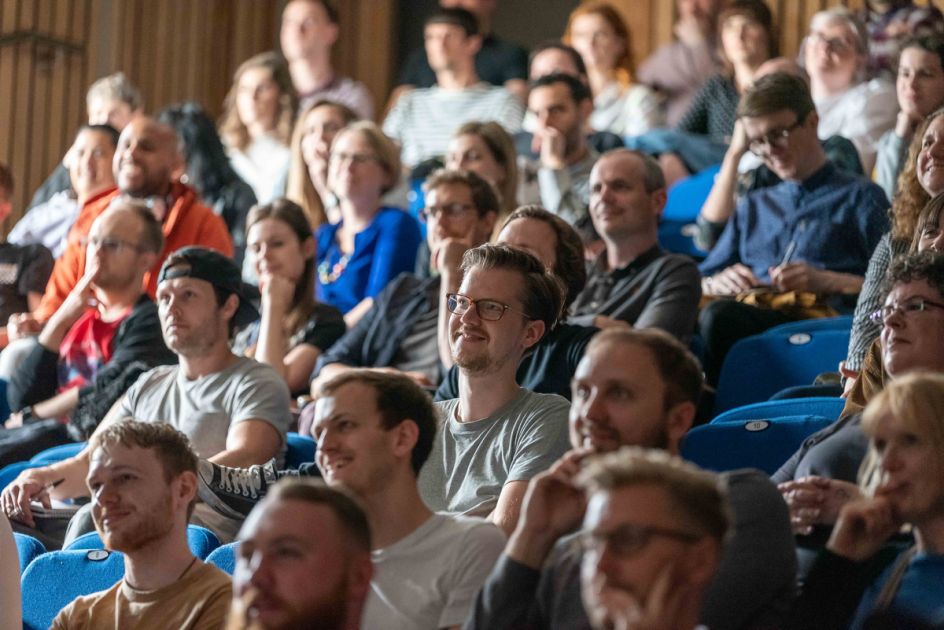
Birmingham Design Festival. Photography by Martin O'Callaghan
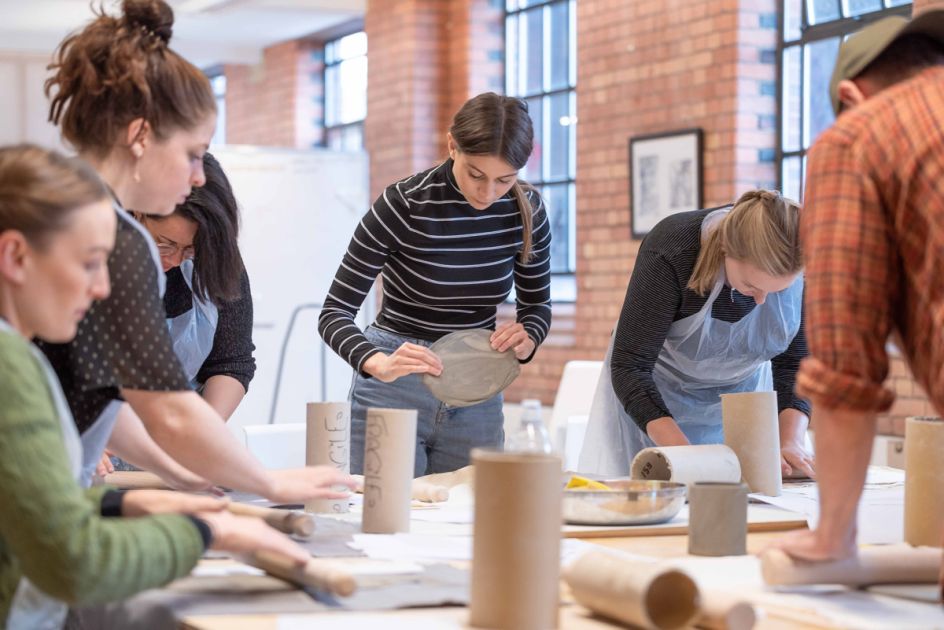
Birmingham Design Festival. Photography by Martin O'Callaghan
Any pleasant surprises?
Luke: So many! Sponsors who got on board with our vision and went above and beyond, effortless and genuine teamwork. Volunteers who all kept smiling, speakers who stayed for the whole festival hanging out with each other and generally being rad (and have now become friends) venues which came alive with activity and energy, and a great turnout despite the unseasonal weather!
Dan: I’m always surprised to see how far people travel to join us at the festival. We had attendees from various countries across Europe, but also America and Australia. It’s incredible that in year two, people have enough confidence in us to take that risk.
What things will you be doing differently in 2020?
Dan: This is still under wraps so we can’t discuss too much. Over the next few months, we’ll be taking steps to make sure the festival is sustainable for years to come and continue to offer an affordable, world-class experience. We’ll likely announce the details on that later in the year.
Luke: As Dan has hinted at, we're planning some big structural changes which we're excited about – plus a theme for 2020 which I think is going to work well. There'll also probably be some inevitable team, venue and sponsor switcheroos, but nothing major we hope. Keep your eyes on our social media for news as it drops.
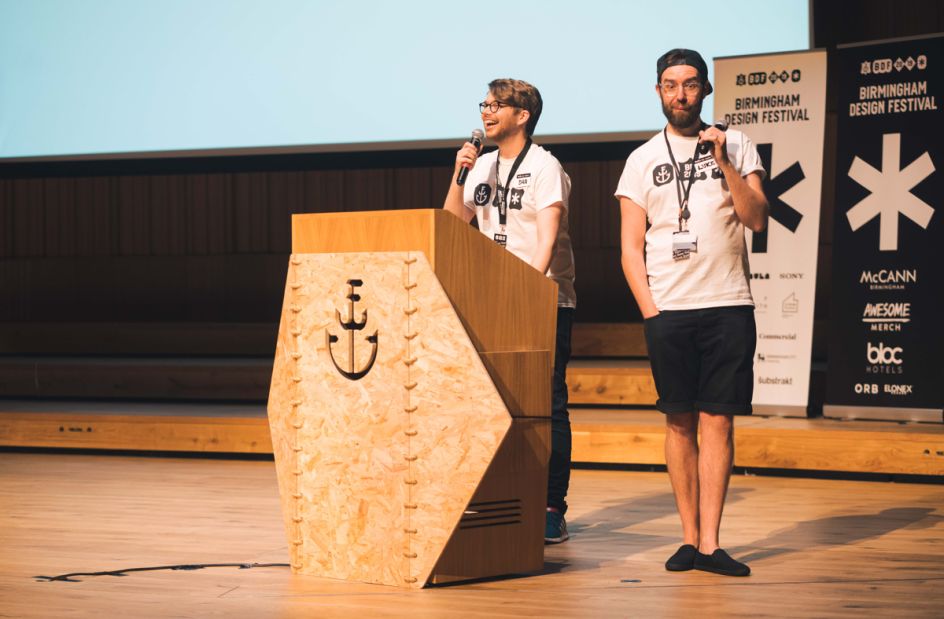
Dan and Luke at Birmingham Design Festival. Photography by Thom Bartley
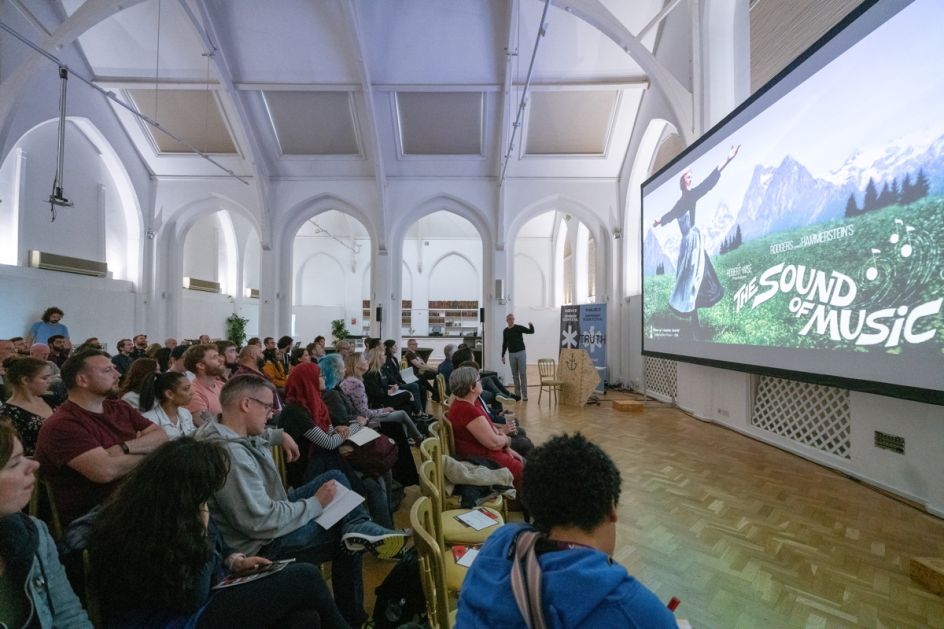
Birmingham Design Festival. Photography by Martin O'Callaghan
Ok, so if someone is reading this and they’re hoping to run their festival, what is your best piece of advice?
Luke: Buckle up, because it's a crazy ride! It's not for the faint-hearted, and you won't be able to do it without help – so make sure you either have existing relationships you can call on, or have a budget and plan to make it happen. For us, it's felt like somewhere between executing a massive year-long design project and running a small studio, so you're going to need all the soft and hard skills those things require. I'd also implore them to keep their event accessible to those who need it most – we've shown you can put on a festival without hiking up the ticket prices.
Dan: Get a fantastic team to help you, bounce ideas off and support you where needed. Have faith in your vision and if you believe don’t deviate from it. Be kind, generous and supportive of others, and you will see that replicated. Build yourself up to it, don’t go straight in for the big fish, BDF may seem ambitious for its first year (and it was), but it followed years of networking, testing the water with smaller events and researching what other festivals did well.

















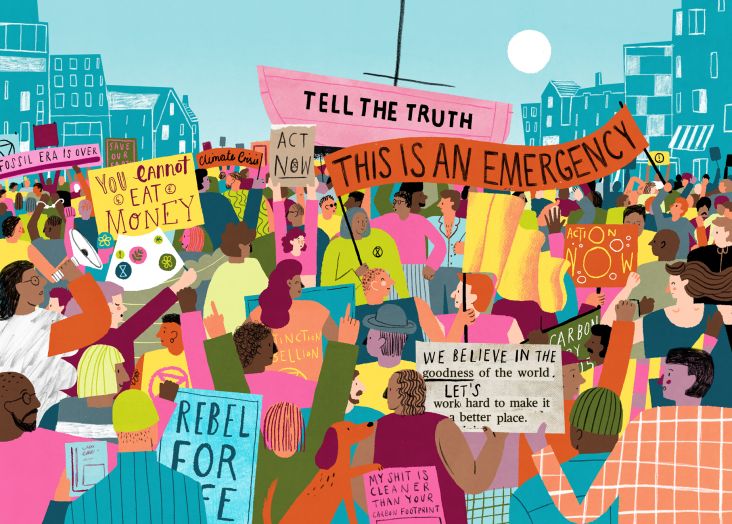
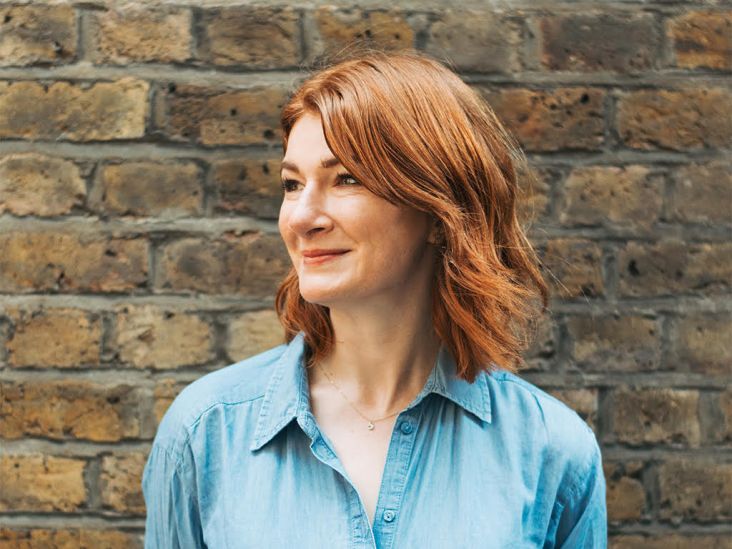
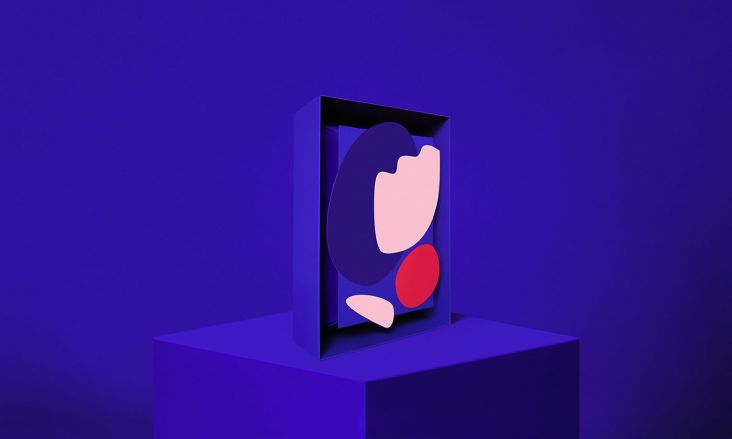
](https://www.creativeboom.com/upload/articles/f0/f014ce633ae4b87812b6e1c12769900d7cc12e9a_732.jpeg)
